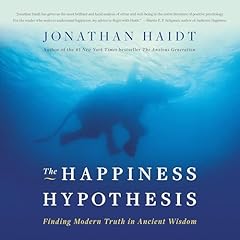
Talking to Strangers
What We Should Know about the People We Don't Know
No se pudo agregar al carrito
Add to Cart failed.
Error al Agregar a Lista de Deseos.
Error al eliminar de la lista de deseos.
Error al añadir a tu biblioteca
Error al seguir el podcast
Error al dejar de seguir el podcast
 Exclusivo para miembros Prime: ¿Nuevo en Audible? Obtén 2 audiolibros gratis con tu prueba.
Exclusivo para miembros Prime: ¿Nuevo en Audible? Obtén 2 audiolibros gratis con tu prueba.Compra ahora por $22.49
-
Narrado por:
-
Malcolm Gladwell
-
De:
-
Malcolm Gladwell
Malcolm Gladwell, host of the podcast Revisionist History and author of the #1 New York Times bestseller Outliers, offers a powerful examination of our interactions with strangers -- and why they often go wrong.
How did Fidel Castro fool the CIA for a generation? Why did Neville Chamberlain think he could trust Adolf Hitler? Why are campus sexual assaults on the rise? Do television sitcoms teach us something about the way we relate to each other that isn't true?
While tackling these questions, Malcolm Gladwell was not solely writing a book for the page. He was also producing for the ear. In the audiobook version of Talking to Strangers, you'll hear the voices of people he interviewed--scientists, criminologists, military psychologists. Court transcripts are brought to life with re-enactments. You actually hear the contentious arrest of Sandra Bland by the side of the road in Texas. As Gladwell revisits the deceptions of Bernie Madoff, the trial of Amanda Knox, and the suicide of Sylvia Plath, you hear directly from many of the players in these real-life tragedies. There's even a theme song - Janelle Monae's "Hell You Talmbout."
Something is very wrong, Gladwell argues, with the tools and strategies we use to make sense of people we don't know. And because we don't know how to talk to strangers, we are inviting conflict and misunderstanding in ways that have a profound effect on our lives and our world.
Los oyentes también disfrutaron:




















A Conversation with Best-selling Author Malcolm Gladwell
Reseñas de la Crítica
—Rhett Power, Forbes
Our favorite moments from Talking to Strangers

About the Creator and Performer
Malcolm Gladwell is a Canadian journalist, author, and podcaster. He is the host of the podcasts Revisionist History and Broken Record and co-founder of the audio production company Pushkin Industries. For his sixth audiobook, the #1 New York Times audio best-seller Talking to Strangers, he drew on real-life audio–including archival footage and clips from his own interviews—to incorporate the production techniques of a podcast into the audiobook format. It has been praised by Audible listeners as "a new era in audiobooks…and maybe in relating to others." He has also written and narrated The Tipping Point (2000); Blink (2005); Outliers (2008); and David and Goliath (2013), all of which are New York Times best-sellers. Gladwell’s books and articles often deal with the unexpected implications of research in the social sciences, particularly sociology, psychology, and social psychology. He was appointed to the Order of Canada in 2011 and has been a staff writer for The New Yorker since 1996. He lives in New York.
Photographed by Celeste Sloman
Las personas que vieron esto también vieron:


















Important view on polarized topics.
Se ha producido un error. Vuelve a intentarlo dentro de unos minutos.
The next level of audio book!!
Se ha producido un error. Vuelve a intentarlo dentro de unos minutos.
This, for me, is his best work. The original format is great. Why not make use of what audio is capable of to keep things engaging? Great work. More than this however, it is a very well told and important message that Gladwell delivers here and as much of a game changer that should habe societal impact as outliers, except that book was 97% lifted from "Bounce." So kudos to Gladwell. He is back at his best here. Buybthis book and apply its lessons!
Gladwell at his best with an important message
Se ha producido un error. Vuelve a intentarlo dentro de unos minutos.
Yet podcasts, for the most part, keep my interests because they are written for that format.
Finally a book was written and performed with the sense to be read as a podcast.
It is the perfect combination
The Future of Audio books is Here!
Se ha producido un error. Vuelve a intentarlo dentro de unos minutos.
Thanks Malcolm (and Company)
I hope more podcasters adapt this format.
New podcast style format is very entertaining
Se ha producido un error. Vuelve a intentarlo dentro de unos minutos.











